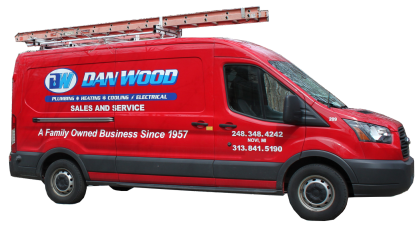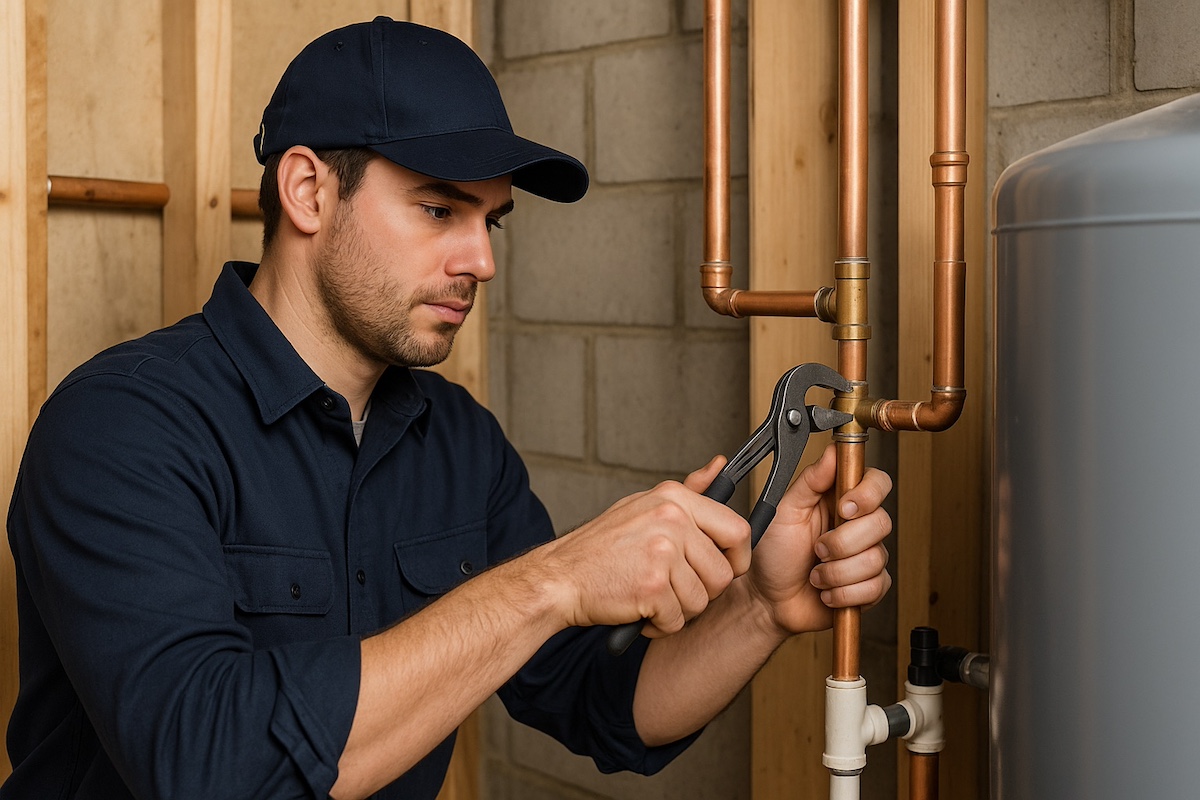Plumbing systems are essential to every building, whether it’s your home, office, or a factory. From keeping your drinking water safe to ensuring proper wastewater disposal, plumbers play a critical role in maintaining daily life. However, not all plumbers have the same level of skill or certification. One important distinction in the plumbing profession is the title “journeyman plumber.”
In this article, we’ll explore what a journeyman plumber is, how someone becomes one, what they do, and why hiring a journeyman plumber can be a smart move for your plumbing needs.
What Is a Journeyman Plumber?
A journeyman plumber is a certified and licensed professional who has completed a plumbing apprenticeship and passed a licensing exam. At this stage, they are fully qualified to perform plumbing work independently, without direct supervision.
While a journeyman plumber may still work under a master plumber for larger or more complex jobs, they are legally allowed to install, repair, and maintain plumbing systems on their own. Journeymen work in a variety of settings, from homes and apartment complexes to schools, hospitals, and commercial buildings.
Steps to Become a Journeyman Plumber
Becoming a journeyman plumber is not a quick process as it requires education, training, and passing a state or local licensing exam. Here’s how it usually works:
1. Meet Educational Requirements
Most aspiring plumbers begin by earning a high school diploma or GED. While not mandatory in every state, this is usually the minimum requirement to enter a plumbing apprenticeship program.
Courses that help prepare for a plumbing career include:
- Mathematics (especially algebra and geometry)
- Physics
- Technical drawing or shop class
2. Complete a Plumbing Apprenticeship
After meeting the basic educational requirements, the next step is to enroll in a plumbing apprenticeship, which typically lasts 4 to 5 years. These programs combine:
- Classroom instruction (safety, codes, system design)
- Hands-on training (pipe installation, fixture fitting, repairs)
Apprentices work under licensed plumbers and gain experience in everything from residential plumbing to large-scale commercial systems.
3. Pass the Journeyman Licensing Exam
After completing the required hours of training (often around 8,000 hours), the apprentice must pass a licensing exam to become a journeyman plumber. The exam usually covers:
- Plumbing codes
- Safety regulations
- System design and blueprint reading
- Practical knowledge
Each state or region has its own licensing board, so requirements may vary.
Responsibilities of a Journeyman Plumber
Journeyman plumbers are trained to handle a wide range of tasks. Their responsibilities typically include:
- Installing and repairing water, gas, and sewer lines
- Connecting appliances like water heaters, dishwashers, and washing machines
- Diagnosing and fixing leaks, clogs, or low water pressure
- Interpreting blueprints and plumbing schematics
- Ensuring all work complies with building codes and regulations
- Supervising and mentoring apprentices on the job
They work with a variety of materials such as PVC, copper, and steel pipes, and use tools ranging from wrenches and pipe cutters to diagnostic devices.
Journeyman vs Apprentice vs Master Plumber
Understanding the differences between these three roles is key when choosing a plumber or pursuing a plumbing career.
Apprentice Plumber
- Entry-level position
- Works under close supervision
- Focused on learning through experience and classroom instruction
Journeyman Plumber
- Licensed professional
- Can work independently
- May supervise apprentices
- Requires completion of an apprenticeship and a licensing exam
Master Plumber
- Highest certification level
- Can pull permits and run their own plumbing business
- Often involved in system design, project management, and mentoring journeymen
Skills and Qualities of a Successful Journeyman Plumber
Being a journeyman plumber requires more than technical knowledge. The best professionals in this field possess:
- Problem-solving skills: Quickly identify the source of plumbing issues and provide efficient solutions
- Attention to detail: Ensure systems meet safety and code requirements
- Physical strength and stamina: Plumbing often involves crawling under buildings or lifting heavy tools
- Good communication: Explain problems and solutions clearly to homeowners or business clients
- Time management: Complete jobs on schedule and handle multiple projects efficiently
Career Opportunities and Advancement
Job Outlook and Demand
The demand for qualified plumbers, including journeymen, remains strong due to the ongoing need for plumbing installations, upgrades, and repairs. Plumbing is also one of the trades least likely to be replaced by automation.
Average Salary
In the U.S., the average journeyman plumber earns between $50,000 and $75,000 per year, depending on experience, location, and specialization.
Advancement Path
Journeymen can advance their careers by:
- Becoming a master plumber
- Starting their own plumbing business
- Specializing in areas such as green plumbing, fire sprinklers, or backflow prevention
- Earning additional certifications (e.g., gas line installation, medical gas systems)
Why Hire a Journeyman Plumber?
When you hire a journeyman plumber, you’re getting someone who is:
- Certified and licensed: They’ve passed exams and met strict training standards
- Experienced: They’ve completed thousands of hours of hands-on work
- Cost-effective: Often more affordable than a master plumber for routine jobs
- Reliable: Journeymen are skilled enough to work independently, but also accountable to licensing authorities
Whether you’re dealing with a leaky faucet or planning a major bathroom renovation, hiring a journeyman plumber ensures the job is done professionally and up to code.
FAQs About Journeyman Plumbers
How long does it take to become a journeyman plumber?
Typically, it takes 4 to 5 years of apprenticeship, followed by passing a licensing exam.
Can journeyman plumbers work independently?
Yes, they can work on most plumbing jobs without supervision, but they may need a master plumber to pull permits for large projects.
Do journeyman plumbers need continuing education?
In many states, journeymen are required to complete continuing education courses to maintain their license and stay updated on code changes.
How much does a journeyman plumber earn?
Earnings vary, but most journeyman plumbers make between $24 to $40 per hour, depending on location and experience.
Can a journeyman plumber start their own plumbing business?
They typically need to become a master plumber first, as many states require that level to pull permits and operate a business legally.
Conclusion: Trust the Experience of Dan Wood Services
At Dan Wood Services, we understand the importance of skilled craftsmanship and trustworthy service. Our team includes highly trained journeyman plumbers who bring years of hands-on experience and certified expertise to every job. Whether you need a quick fix, a system upgrade, or a full installation, our licensed professionals are ready to help with honesty, professionalism, and attention to detail.
We’ve proudly served homes and businesses across Southwest Michigan for over a century, offering plumbing services you can count on. When you choose Dan Wood Services, you’re not just hiring a plumber, you’re getting a reliable partner who values your time and comfort.
Need a dependable plumber for your next project?
Contact us today and experience the Dan Wood difference.




